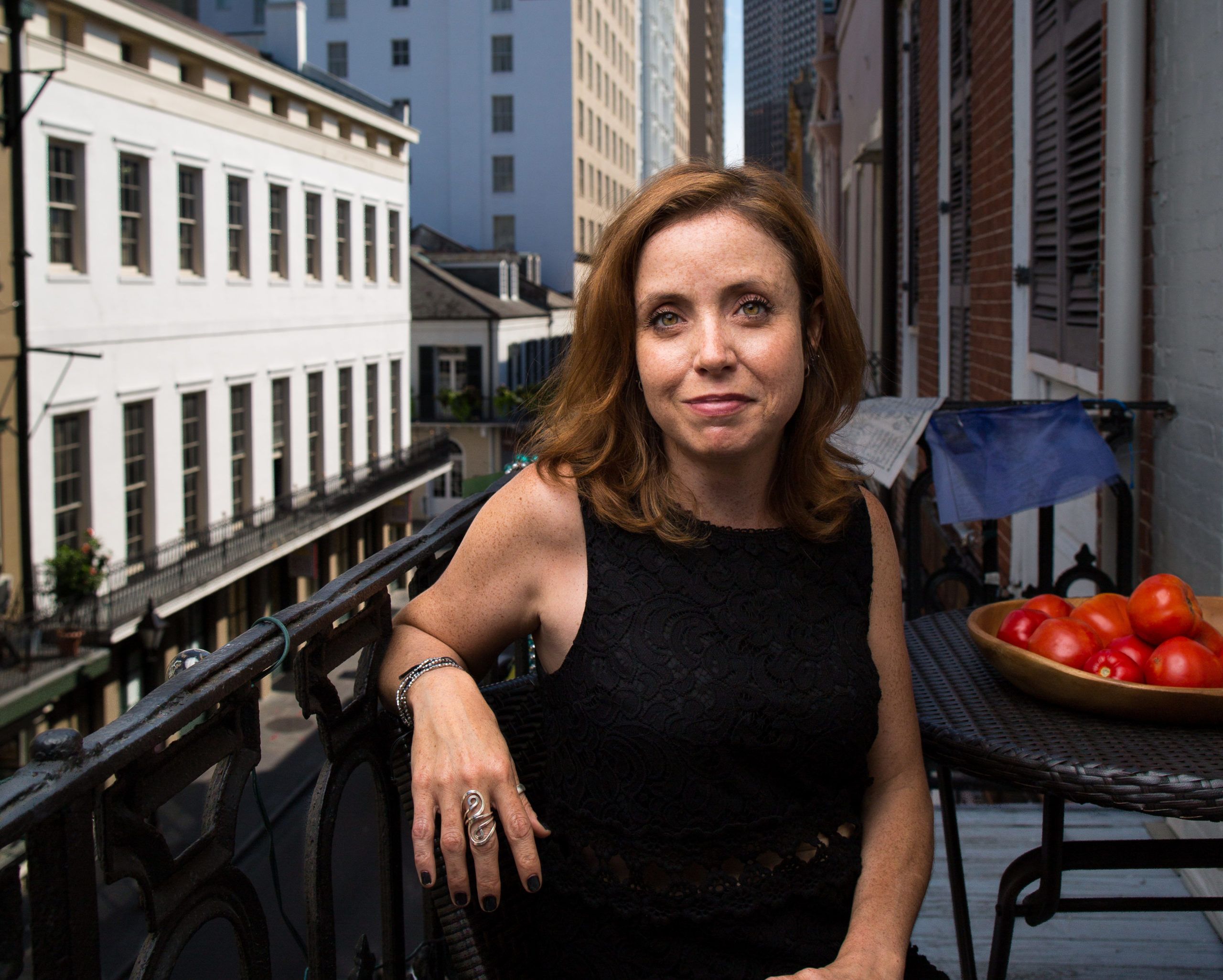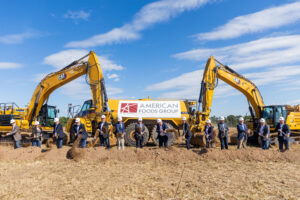Danielle Nierenberg is the inspiring founder of Food Tank, the Washington DC-based non-profit think tank dedicated to educating, inspiring, advocating, and creating change for a more equitable food system globally. The organization has a global network of over 30,000 members and subscribers and holds events to bring the industry together to discuss the food industry’s most pressing challenges. (Here’s our coverage reported from Food Tank DC earlier this year, which focused on the next Farm Bill.)
We caught up with Nierenberg to get a high-level view of the challenges facing the industry today, how technology can play a role, and being a female entrepreneur.
What are the biggest challenges facing the food system in the US today?
If you asked me a few months ago before the new presidential administration, my answer would probably have been different. Now we’re really facing an upward political challenge to create a healthier, more sustainable food system. We made some gains over the last eight years but we didn’t make as many as we could have despite having a more liberal president. I wish we had; a lot of us sat back and thought things were going forward, and everyone was buying local foods and feeling good about going to the farmers’ market and so on. Now, we have a real fight on our hands, but that’s a good thing as it reminds us of the urgency of the issues. We have to make a stand and make sure we’re investing in the right kinds of things, not just innovation, but in people, and farmers, young scientists, and advocates; we need to be storytellers around issues and make sure our voices are heard.
How does that differ to the rest of the world?
One of the reasons we founded Food Tank was to bridge the food industry at home and abroad. There’s this assumption that farmers in the US have a wealth of information they can share with poor farmers in the rest of the world – and that’s, of course, true in many ways – but there is also a lot for our farmers to learn from smallholders because they are struggling with many of the same things we are around climate, water scarcity, wildfires, drought and so on.
Farmers elsewhere in the world have often been dealing with a lot less education and fewer resources than US farmers. Among these farmers, there is growing interest in alternative cropping systems, mixed crop and livestock systems, growing more durable foods that can withstand drought, flooding, and extreme weather. So I think there’s an exciting opportunity for developed nations like the US to learn from elsewhere.
How is Food Tank hoping to change this?
We do a couple of different things. We are writing and researching constantly to provide news articles, seven days a week and sometimes even two-to-three times a day. We collaborate with writers globally, and partner with organizations to produce research reports. These include the family farmer’s role, true cost accounting in food, and the importance of youth and women in the industry.
And increasingly our role is to convene and bring together different stakeholders at our summits, which started in 2014. Our summits are expanding across the US and globally to bring the different sides of the issues together. Kip Tom, an advisor to Trump on agriculture during the campaign, spoke at the DC summit alongside Kathleen Merrigan, so we really are bringing a diverse group together. We want to have Monsanto executives sitting together with food justice advocates, and they won’t always agree but it’s important to listen to as many sides as possible if we’re to break down barriers. Often you can be preaching to the choir and that hasn’t got us anywhere.
What role do you see new technology across the supply chain playing in the development of the world’s future food system?
I think such a huge role can be played by new technologies, but they have to be the right technologies, innovation, and science. Not all science and tech is great; we don’t just want to do something because it increases yields, we want to make sure it really works for the farmer who’s producing food daily. You’re seeing a shift now and we’re not worshipping at the alter of science. We need it – especially in a political climate where science is being attacked on every front – but not all innovations can help farmers do the jobs they need. We need to link innovation to what farmers need. We need to go into communities and ask them what they want and need, instead of telling them what they need.
Are there any technologies you’re particularly positive about? Any you think are a waste of time?
I’m tired of the next app. We need real solutions and they can be a combination of high and low tech. That’s something a lot of people are talking about; combining traditional knowledge and techniques farmers are using on the ground and applying those with different technologies that might be used from a cell phone, a drone and so on.
I’ve seen mobile phones really helping farmers to get more information to help them run their operations such as how to spot a livestock disease or detect rust in crops. They’re also increasingly used to make banking and finance transactions.
On the food side, I’m excited for consumers to use their cell phones to gain transparency about their food, but there’s been a bit of an overload and we’re almost giving them too much information and it’s not always the right information. So I’m skeptical about some of these apps and would rather see these great minds used for other things.
What do you think about genetic technologies such as gene editing?
I think there could be so much potential for gene editing and GMOs, like many others do, but I don’t think it will save the world. What bothers me with GMO is that it promised a couple of things – reducing the use of agrichemicals and increasing yields and incomes for farmers – but never lived up to those promises. Yields are comparable to conventional production and even organic in some cases. Plus there’s been a focus on commodity crops, which aren’t feeding people directly.
When we talk about GMO, it takes up all the oxygen in the room; people are either at 1 or 10 on the scale of opinion about GMO, they’re never in the middle. And I think it will be the same for gene editing; people’s immediate reaction will be yes or no. But as we figure out if we want to invest in these technologies, why not invest in something we know works like agroecological farming practices? Or working directly with farmers to democratize information? I just don’t know if we need gene editing and think there might be a better use of investors’ money.
Can investing agroecological methods make money for investors, as ultimately they need to make a return?
Well, this is an area where foundations and governments need to take a lead; it’s not going to be the big corporations and agrochemical companies. Governments that depends on agriculture as part of their livelihood need to invest in these processes.
People are ignoring the famine going on in Yemen and Nigeria, and they’re forgetting the recent past of 2008 and 2009; we are one famine away from international crises of the scale of the Arab Spring – it could be the African Spring. It’s in everyone’s best interest to invest where they can help small and medium-sized farmers. It’s a security issue.
We’ve just come to the end of Women’s History Month – what advice do you have for other female entrepreneurs in the food industry? Do you think female entrepreneurs working in food have a different experience to other industries?
For sure it’s an uphill battle to be taken seriously as a woman sometimes. I’m 5’1’’ and look very young and I think in some cases that holds me back as the face of an organization in ways I can’t imagine. But I’m also inspired as we often have mostly women on stage at our events and in our volunteers.
There are challenges for women in this industry across the globe; whether it’s a pay gap in US food companies or among female farmers in developing countries. And the fight for women’s equality goes on in all aspects of our lives, not just the food system. We need to keep making sure our voices are heard and we’re getting our messages out there. We need to educate boys and young men about the importance of women in the food system to show them how important we are in nourishing all of them and, hopefully, that will promote respect for women. The opportunity is changing and I see things changing and more and more women are leading the fight. We’re not far off from gaining the equality and rights we need.
The opportunity is changing and I see things changing and more and more women are leading the fight. We’re not far off from gaining the equality and rights we need.





